Fifteen PhD positions are available with the REMARO network. Below we list details of the 15 projects (click on the titled to jump to the description). Detailed instructions on how to apply are available here (click).
- Vision-based classification for under water safety critical applications (Aarhus, Robotics AI)
- Vision-based navigation for underwater safety critical applications (Aarhus, Robotics AI)
- Sonar-based 3D reconstruction for dense underwater SLAM maps (Bremen, Robotics AI)
- Probabilistic property-based testing for feature classification in submarine vision (Copenhagen, Software Engineering/Formal Methods)
- System-level safety analysis for vision-based autonomous submarine vehicles (Porto, Robotics Safety Engineering/Formal Methods)
- Identification of bio-geo-chemical signatures of dynamic features of the ocean (Porto, Robotics AI)
- Model-based probabilistic testing for system-level safety of underwater vision controlled robot (Copenhagen, Software Engineering/Formal Methods)
- Meta-control for reliable autonomous operation of underwater robots (Delft, Robotics Safety and AI/Model-driven Engineering)
- System-level verification of an autonomous under-water robot (Aachen, Formal Methods/Verification)
- Digital Twin Knowledge Base for submarine robot inspection/manipulation (Bremen, Robotics AI)
- A knowledge service for underwater pipeline inspection and maintenance (Bremen, Robotics AI)
- Property-based testing and statistical assessment of plans (Copenhagen, Software Engineering/Formal Methods)
- Formal methods for underwater robots as probabilistic hybrid systems (Aachen, Formal Methods/Verification)
- Verification methods for reflective control systems (Oslo, Formal Methods/Verification)
- Continuous quality assurance for cognitive controls (Oslo, Formal Methods/Software Engineering)

REMARO has received funding from the European Union’s EU Framework Programme for Research and Innovation Horizon 2020 under Grant Agreement No 956200
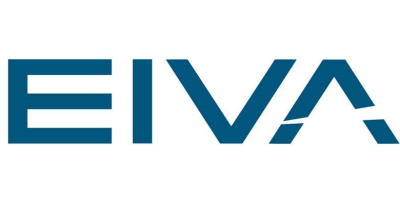
Position #1: Vision-based classification for under water safety critical applications
For safety, it is crucial to warn the system when model predictions are unreliable. We will expand reliable AI concepts by developing a concrete example: a model to identify important underwater anomalies such as debris, pipeline damage, or leakage. This model also has to indicate prediction weaknesses(i) and (ii) detect when new anomalies appear (e.g., via distribution shifts), as a part of an automatic risk assessment system.
Tasks and Responsibilities
- Developing novel perception and localization methods for underwater robotics
- Support to develop journal and conference articles
- Communicate with our industrial partner (EIVA).
Prerequisites. Applicants should hold a MSc degree in automatic control engineering, mechatronics engineering, electrical engineering, mechanical engineering, computer science or other related disciplines:
- The candidate should have excellent verbal and writing skills in English with very good communication skills,
- Concrete knowledge in one of the programming languages C/C++ and Python,
- Experience in computer vision and deep neural networks,
- Hands-on experience in visual sensor, stereo and depth camera systems is a plus,
- Experience in hands on activities with robots is a plus,
- Experience of Robot Operating System (ROS) is a plus,
- Experience of machine learning / deep learning / AI is a plus
Hiring institution: EIVA
PhD Enrollment: Graduate School of Science and Technology. The project involves collaboration with EIVA in Aarhus (Denmark), ITU in Copenhagen (Denmark), OMST in Porto (Portugal), and ISEP Porto (Portugal).
Duration of the project: 36 months
Main academic supervisor: prof. Erdal Kayacan, contact: erdal@eng.au.dk
Co-supervisors: prof Andrzej Wąsowski (ITU, Denmark), dr. Yury Brodskiy (EIVA, Denmark)
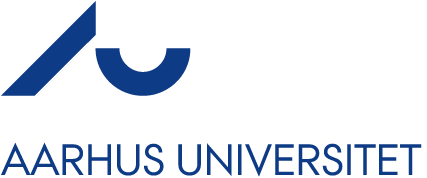
Position #2: Vision-based navigation for underwater safety critical applications
This project will develop reliable AI methods for perception (vision, object detection, and localization) underwater. We will use camera-based deep learning algorithms to aid the navigation of underwater vehicles.
Tasks and Responsibilities
- Developing novel perception and localization methods for underwater robotics
- Support to develop journal and conference articles
- Communicate with our industrial partner (Eiva).
Prerequisites. Applicants should hold a MSc degree in automatic control engineering, mechatronics engineering, electrical engineering, mechanical engineering, computer science or other related disciplines:
- The candidate should have excellent verbal and writing skills in English with very good communication skills,
- Concrete knowledge in one of the programming languages C/C++ and Python,
- Experience in computer vision and navigation methods for robots,
- Hands-on experience in visual sensor, stereo and depth camera systems is a plus
- Experience in hands on activities with robots is a plus,
- Experience of Robot Operating System (ROS) is a plus
- Experience of machine learning / deep learning / AI is a plus
Hiring institution: Aarhus University
PhD Enrollment: PhD position in Graduate School of Science and Technology. The project involves collaboration with RWTH in Aachen (Germany), EIVA in Aarhus (Denmark), OMST in Porto (Portugal), and ISEP Porto (Portugal).
Duration of the project: 36 months
Main academic supervisor: prof. Erdal Kayacan, contact: erdal@eng.au.dk
Co-supervisors: prof. Erika Abraham (RWTH, Germany), dr. Yury Brodskiy (EIVA, Denmark)

Position #3: Sonar-based 3D reconstruction for dense underwater SLAM maps
The goal of this project is to research and develop intelligent perception techniques for 3D reconstruction of underwater scenes focusing on sonar-based imaging and multi-beam echo sounders, to obtain improved dense environmental representations in the underwater domain. Furthermore, the aim is to develop and evaluate deep sensor fusion algorithms combining imaging sonars with visual-based sensor modalities (e.g. stereo camera, structured laser light) and other available underwater sensing modalities in order to provide feature-rich maps for underwater SLAM.
Tasks and Responsibilities
- Familiarize yourself with current state-of-the-art in the fields of (1) underwater sonar-based SLAM, (2) 3D reconstruction from sonar images, (3) deep-learning methods, (4) underwater sensor fusion.
- Develop novel solutions for 3D reconstruction of underwater scenes using sonar-based imaging sensors.
- Integrate the developed solutions as standalone software modules for generating dense 3D maps for autonomous underwater vehicles.
- Embed the developed 3D reconstruction solutions into a SLAM backend of an AUV and testing in actual real-world experiments and field missions.
Prerequisites. Master’s degree (or equivalent) in any of the following fields: computer science, mechanical/electrical engineering, physics, mathematics or related fields. Background in some of the following topics: autonomous systems, robot navigation and sensor fusion, machine learning, image processing. Previous research experience or publications are a plus. Good programming skills in C++ and Python. Good English oral and written communication skills. An independent and well-structured working style, as well as a good teamwork spirit.
Hiring institution: PhD position at the German Research Center for Artificial Intelligence – Robotic Innovation Center (DFKI-RIC) in Bremen (Germany).
PhD Enrollment: University of Bremen; The project involves collaboration with ITU in Copenhagen (Denmark), Kraken Robotik GmbH (KRG) in Bremen (Germany), and ROSEN Group in Bremen (Germany).
Duration of the project: 36 months
Main academic supervisor: Prof. Dr. Frank Kirchner, contact: Bilal Wehbe (bilal.wehbe@dfki.de)
Co-supervisors: prof. Andrzej Wasowski (ITU, Denmark), Dr. Jakob Schwendner (KRG, Germany)

Position #4: Probabilistic property-based testing for feature classification in submarine vision
The aim is to develop statistical combinators for property-based testing and a language and taxonomy for testing properties of feature classification in image analysis, with a particular emphasis on the use case of underwater feature detection. The outcome of the project should be a property-based testing library with statistical reasoning and generation (based on a Bayesian Inference engine such as pymc3 or pyro) and the new combinators, released under an open-source license. The project will also develop a method to specify visual perception tests suites to be implemented in the framework and apply it to case studies in pipeline fault detection, in vision-based navigation, and in rich underwater 3D reconstruction.
Prerequisites: Background in some of the following fields: functional programming, automated testing, machine learning, image analysis, combined with willingness to work on actual systems.
Hiring institution: IT University of Copenhagen
PhD Enrollment: PhD position in the Department of Computer Science at the IT University of Copenhagen, in the SQUARE (Software Quality Research) Group. The project involves collaboration with DFKI in Bremen (Germany) and EIVA in Aarhus (Denmark).
Duration of the project: 36 months
Main academic supervisor: prof. Andrzej Wasowski, contact: wasowski@itu.dk
Co-supervisors: dr. Leif Christensen (DFKI, Germany), dr. Yury Brodskiy (EIVA, Denmark)

Position #5: System-level safety analysis for vision-based autonomous submarine vehicles
The aim is to perform safety analysis for vision-based, deep-learning-based, navigation and surveying for AUVs and propose fault-tolerant safety engineering solutions to mitigate and overcome risks. The outcomes should be: the integration of a vision-based navigation controller of EIVA into AUVs of OMST; the detailed study of risks in pipeline inspection scenarios; and a review on Technical AI Safety to support the design of intelligent systems under uncertainty; and safety engineering patterns to mitigate risks.
Prerequisites: Candidate must hold a Master’s degree in any of the following fields: computer science, informatics, mechanical/electrical engineering, physics, mathematics, marine sciences or related fields. Background in some of the following fields: Deep Learning, AI Safety, safety engineering patterns to mitigate risks, image analysis and vision-based navigation, combined with willingness to work on current systems.
Hiring institution: OMST (Ocean Scan Marine Systems & Technology)
PhD Enrollment: Faculty of Engineering of the University of Porto (FEUP). The project involves collaboration with ISEP Porto (Portugal), OMST Porto (Portugal), and RWTH in Aachen (Germany). Note: The enrollment in the Doctoral Program in Electrical and Computer Engineering of the Faculty of Engineering of the University of Porto (FEUP) is mandatory before signing the contract – detailed instructions will follow later, after the call selection. The length of this PhD programme is 4 years.
The PhD position is offered under a term employment contract in accordance with the provisions of the national regulation in force.
Duration of the project: 48 months
Main academic supervisor: prof. Ana Maria Madureira, contact: amd@isep.ipp.pt
Co-supervisors: prof. Erika Abraham (RWTH, Germany), Luis Madureira (OMST, Portugal)

Position #6: Identification of bio-geo-chemical signatures of dynamic features of the ocean
The aim is to develop statistical methods to perform real-time analysis of data streams generated by marine robots with the goal of finding and tracking fronts, filaments, and other hydrographic features of high mobility, and limited spatial and temporal scales. The approach should address single and multi-vehicle operations in a uniform way, even when coordination is achieved over acoustic communications. The expected results are: 1. Statistical methods for the identification of biogeochemical signatures of dynamic features of the ocean; 2. Adaptive sampling algorithms for finding and tracking hydrographic features of high mobility and limited spatial and temporal scale with networked vehicles.
Prerequisites: Candidate must hold a Master’s degree in any of the following fields: computer science, informatics, mechanical/electrical engineering, physics, mathematics, marine sciences or related fields. The candidate must have strong analytical skills and be able to work at the intersection of science and technology. The candidate should have experience in one of the following programming languages C/C++ and Python. Experience with robotic operations and/or with the Robot Operating System (ROS) or with the LSTS software toolchain is a plus.
Hiring institution: University of Porto
PhD Enrollment: Faculty of Engineering of the University of Porto (FEUP). The project involves collaboration with OMST in Porto and TUD in Delft. Note: The enrollment in the Doctoral Program in Electrical and Computer Engineering of the Faculty of Engineering of the University of Porto (FEUP) is mandatory before signing the contract – detailed instructions will follow later, after the call selection. The length of this PhD programme is 4 years.
The PhD position is offered under a term employment contract in accordance with the provisions of the national regulation in force.
The selected candidate will also be required to obtain a recognition of his/her higher education academic degree and diploma (link), in compliance with the provisions of the Decree-Law No. 66/2018 of august 16th, and any formalities established there must be fulfilled before signing the contract. Administrative support will be given to complete this process.
Duration of the project: 48 months
Main Academic Supervisor: prof. João Sousa, contact: jtasso@fe.up.pt
Co-supervisors: Carlos Hernandez Corbato (TUD, Netherlands), Luis Madureira (OMST, Portugal)

Position #7: Model-based probabilistic testing for system-level safety of underwater vision controlled robot
The aim is to support safety assessments for an underwater pipeline inspection robot using model-based testing. This requires bringing the system safety modeling and model-based testing to the probabilistic semantic universe exploiting testing theories such as pioco. This theory and existing tools need to be extended to test not only probabilities of properties, but also belief and uncertainty measures used in probabilistic robotics, hereunder covariance, entropy, and KL-divergence in order to support quantifying robustness of testing results. The research design should be implemented in a library consistent with a modeling tool (for instance SysML-based) and applied to an industrial case.
Prerequisites: Background in some of the following fields: formal methods, semantics, verification, model-based engineering, combined with willingness to work on actual systems.
Hiring institution: IT University of Copenhagen
PhD Enrollment: PhD position in the Department of Computer Science at the IT University of Copenhagen. The project involves collaboration with ISEP in Porto and secondments at RWTH in Aachen and at Ocean Scan in Porto.
Duration of the project: 36 months
Main academic supervisor: dr. Mahsa Varshosaz, contact: mahv@itu.dk
Co-supervisors: prof. Ana Madureira (ISEP, Portugal) and dr. Peter Christiansen (EIVA, Denmark).
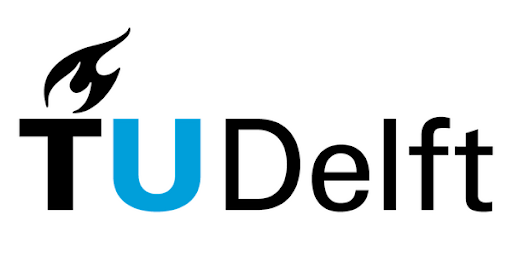
Position #8: Meta-control for reliable autonomous operation of underwater robots
The goal of this project is to develop meta-control solutions to improve the autonomy and reliability of robots for underwater operations by adapting at runtime their mission plan and control architecture simultaneously.
Meta-control is a combination of self-adaptive systems and cognitive control methods to develop supervisory modules for hybrid, AI-based robot control architectures. The key idea is to bridge the three dimensions of an autonomous system: system, mission and environment, using semantic knowledge.
The project will explore model-based systems engineering (MBSE) and knowledge representation methods to capture that semantic knowledge about the robot’s control architecture, and ontological reasoning to diagnose the situation from perception data and drive the runtime adaptation. This will overcome the shortcomings of current approaches for robot control, e.g. based only on deep learning, that do not address the three dimensions.
The method will be demonstrated on a real underwater robot for oceanography applications. The developed solution will enable the robot to handle both component faults and task-related contingencies, e.g. particles occluding vision or losing grip on a part being replaced, while handling the execution of a complex mission plan involving different cognitive modules, robot’s skills, and physical resources.
Prerequisites: Candidate must hold a Master’s degree (or equivalent) in any of the following fields: computer science, mechanical/electrical engineering, physics, mathematics or related fields. Background in some of the following topics: autonomous robots, systems and control, model-based systems and/or software engineering, and knowledge representation and reasoning. The candidate must have strong analytical skills, and be able to work at the intersection of several research domains. A very good command of the English language is required, as well as excellent communication skills, and good programming skills.
Hiring institution: TU Delft
PhD Enrollment: PhD position in the Cognitive Robotics. Department at TU Delft. The project involves collaboration with UB in Bremen, ITU in Copenhagen, DFKI in Bremen, and Ocean Scan in Porto.
Duration of the project: 48 months
Main Academic Supervisor: prof. Carlos Hernandez Corbato, contact: C.H.Corbato@tudelft.nl
Co-supervisors: prof. Andrzej Wasowski (ITU, Denmark), Luis Madureira (OMST, Portugal)
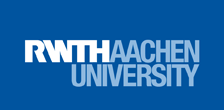
Position #9: System-level verification of an autonomous under-water robot
Underwater pipeline inspection robots possess complex behavior involving e.g. uncertainties, AI-based learning and the combination of the continuous evolution of physical quantities with the discrete nature of digital controllers. For their safety assessment, algorithms and tools for the analysis of different aspects in isolation are available (at least academically), but their combination is scientifically as well as technically highly challenging. Our goal is not only to assess certain components, but to use these results to analyze the robot at system level to be able to analyze complex behavior like autonomous navigation including obstacle detection and avoidance.
Prerequisites: Followed some lectures on formal methods (modeling, synthesis, verification) or automata theory; fun with theoretical computer science; programming skills
Hiring institution: RWTH Aachen University
PhD Enrollment: PhD position in the Department of Computer Science at RWTH Aachen University. The project involves collaboration with DFKI in Bremen, Ocean Scan in Porto, and ISEP in Porto.
Duration of the project: 36 months
Main Academic Supervisor: prof. Erika Abraham, contact: abraham@informatik.rwth-aachen.de
Co-supervisors: prof. Ana Maria Madureira (ISEP, Porto), Luis Madureira (OMST, Porto)

Position #10: Digital Twin Knowledge Base for submarine robot inspection/manipulation
The Institute for Artificial Intelligence (IAI) investigates methods for cognition-enabled robot control. The research is at the intersection of robotics and Artificial Intelligence and includes methods for intelligent perception, dexterous object manipulation, plan-based robot control, and knowledge representation for robots.
As a researcher of the IAI, you actively research by applying and extending the elaborated methods and tools of the IAI (e.g., CRAM, KnowRoB, and openEASE) to the uncertainties of limited resources, computation, and sensor data of submarine robots. You develop a Digital Twin that simulates harsh continuously evolving environments and service tasks on real robots. You design a detailed representation of an environment to be inspected, including data coming from past inspections, both similar and different (e.g., transfer learning from an inspection of the interior of an installation). Your research will be especially the environment representation, semantic annotation, and sensor data fusion deal with noisy data and unreliable information in dynamic environments. You work with IAI researchers and engineers of the ROSEN Group, implementing a service for underwater pipeline inspection and maintenance.
Prerequisites: You have a strong background in some of the following fields: Digital Twins, Knowledge Representation, Data structures, Data Stream Representation.
Hiring institution: University of Bremen
PhD Enrollment: PhD position in the Institute for Artificial Intelligence at University of Bremen. The project involves collaboration with ROSEN in Bremen and UiO in Oslo.
The PhD examination acceptance requires a “Certificate of Equivalence for Foreign Vocational Qualifications”. More information available at https://www.kmk.org/zab/central-office-for-foreign-education/certificate-of-equivalence.html and https://www.uni-bremen.de/fileadmin/user_upload/sites/international/Studieren_in_Bremen/AnerkennungPromotion.pdf . Obtaining such a certificate is not necessary for the job application, but it is required later in the recruitment process.
Duration of the project: 36 months
Main Academic Supervisor: Prof. Michael Beetz, contact: beetz@cs.uni-bremen.de
Co-supervisors: prof. Einar Broch Johnsen (UiO, Norway), dr. Peter Kampmann (ROSEN, Germany)

Position #11: A knowledge service for underwater pipeline inspection and maintenance
The ROSEN Group is a worldwide provider of cutting-edge solutions in all areas of the integrity process chain. Innovation, know-how and a strict orientation on customer needs are the key factors of ROSEN’s unique success story. In this project, you are working with our engineers and scientists in the area of marine robotics in close collaboration with the Institute for Artificial Intelligence (IAI) in Bremen. Your main responsibility will be to design and create a knowledge service that can answer a collection of inspection and maintenance queries, based on the digital twin model studied in D2.2 (ESR10). In detail, you will be studying and developing methods to deal with uncertainty in perception and unreliable a priori information regarding the operational environment. To achieve this, you will study and evaluate relevant available techniques from underwater as well as other domains that have the potential to be applied to underwater applications. Based upon this work, you will investigate the applicability of your approach for environmental representation as well as reasoning and task decomposition approaches.
Prerequisites: You have a strong background in some of the following fields: Digital Twins, Knowledge Representation, Data structures, Data Stream Representation.
Hiring institution: ROSEN Group
PhD Enrollment: PhD position in the Institute for Artificial Intelligence at University of Bremen. The project involves collaboration with ROSEN in Bremen and UiO in Oslo.
The PhD examination acceptance requires a “Certificate of Equivalence for Foreign Vocational Qualifications”. More information are available on https://www.kmk.org/zab/central-office-for-foreign-education/certificate-of-equivalence.html and https://www.uni-bremen.de/fileadmin/user_upload/sites/international/Studieren_in_Bremen/AnerkennungPromotion.pdf . Obtaining such a certificate is not necessary for the application, but it is required later in the recruitment process.
Duration of the project: 36 months
Main Academic Supervisor: Prof. Michael Beetz, contact: beetz@cs.uni-bremen.de
Co-supervisors: prof. Einar Broch Johnsen (UiO, Norway), dr. Peter Kampmann (ROSEN, Germany)

Position #12: Property-based testing and statistical assessment of plans
The aim is to integrate probabilistic programming with simulation tests for runtime exploratory assessment of robotic mission plans (so called ‘prospection’). This should be doen by estimating a probability distribution over performance metric for a possible plan, given a probabilistic partial model of the environment. The project should produce a Bayesian model of simulation run outcome, and an integration of evaluation of CRAM simulations with a probabilistic programming framework. CRAM is a reactive autonomous planning method developed at UB. It is expected that the project will produce an open-source extension module for probabilistic plan prospection with CRAM.
Prerequisites: Background in some of the following fields probabilistic programming and Bayesian statistics, logic programming, combined with planning for autonomous robotics systems.
Hiring institution: IT University of Copenhagen
PhD Enrollment: PhD position in the Department of Computer Science at the IT University of Copenhagen, in the SQUARE (Software Quality Research) Group. The project involves collaboration with University of Bremen (Germany) and ROSEN Group (Germany).
Duration of the project: 36 months
Main Academic Supervisor: prof. Andrzej Wasowski, contact: wasowski@itu.dk
Co-supervisors: prof. Michael Beetz (UB, Germany), dr. Peter Kampmann (ROSEN, Germany)

Position #13: Formal methods for underwater robots as probabilistic hybrid systems
The behavior of underwater robots (i) is strongly affected by uncertainties and (ii) it combines the continuous evolution of physical quantities like position and speed with the discrete steps of digital controllers. Formal methods for the analysis of random behavior as well as for hybrid discrete-continuous behavior have been subject to intensive research. However, the analysis of simultaneously hybrid and probabilistic systems remains an open problem. Our aim is to develop and implement safety verification algorithms for probabilistic hybrid systems and apply them in submarine robotics.
Prerequisites: Fun with theoretical computer science and math; followed some lectures on formal methods (modeling, synthesis, verification) or probabilistic systems or dynamic (continuous) systems; programming skills.
Hiring institution: RWTH Aachen University
PhD Enrollment: PhD position in the Department of Computer Science at RWTH Aachen University. The project involves collaboration with ROSEN in Bremen and UB in Bremen
Duration of the project: 36 months
Main Academic Supervisor: prof. Erika Abraham, contact: abraham@informatik.rwth-aachen.de
Co-supervisors: prof. Michael Beetz (UB, Germany), dr. Peter Kampmann (ROSEN, Germany)
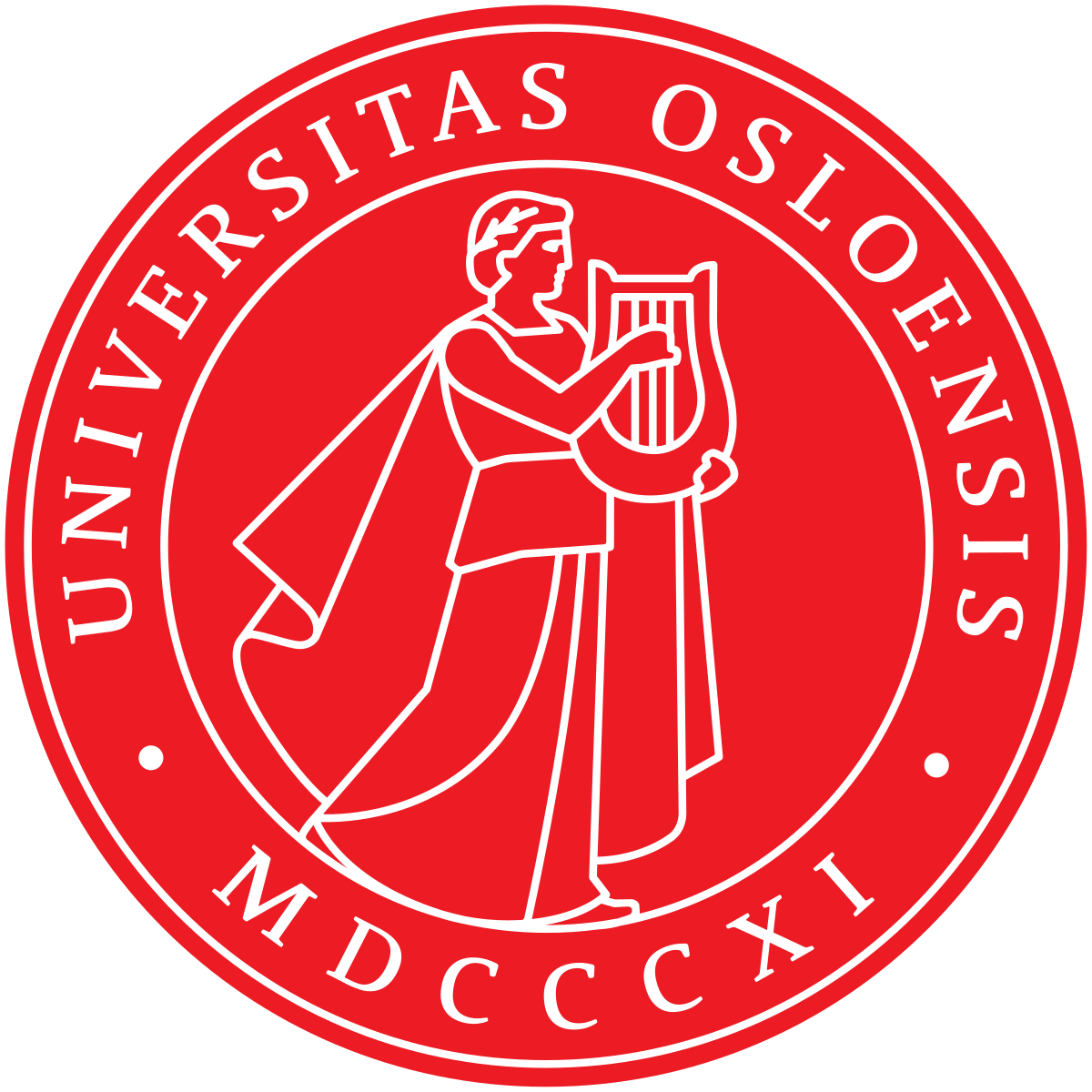
Position #14: Verification methods for reflective control systems
This PhD project aims to explore analysis methods, which are stronger than testing and simulations, to be applied to self-reconfigurable control systems in underwater robotics. The basis for such reconfigurable systems are meta-control supervisory components, which handle recovery from faults and task-related contingencies (e.g., diagnose the current status of the robot’s resources and adapt depending on the current circumstances) while handling the execution of a complex mission plans (e.g., diagnosing the status of sensors), in such a way that the mission is guarantee to be performed. The analysis techniques will be based on logic, formal methods (path exploration, runtime monitoring, theorem proving, etc.) and concurrency theory. These techniques are particularly useful for complex systems, using automated or interactive verification tools. This PhD project will develop and use such techniques for reconfigurable robot controllers.
Prerequisites: Master degree or equivalent in computer science or informatics with background in the following fields: concurrency theory, algorithms and distributed systems, logic, executable/formal models, formal methods.
Hiring institution: University of Oslo;
PhD Enrollment: PhD position in the Department of Department of Informatics at University of Oslo. The project involves collaboration with TUD in Delft, University of Porto and OMST in Porto.
Duration of the project: 36 months
Main Academic Supervisor: Dr. Silvia Lizeth Tapia Tarifa, contact: sltarifa@ifi.uio.no
Co-supervisors: prof. Carlos Hernandez Corbato (TUD, Netherlands), Luis Madureira (OMST, Portugal)

Position #15: Continuous quality assurance for cognitive controls
This PhD project aims to analyze the interaction between a control system and a dynamically evolving knowledge base for autonomous underwater robots. A knowledge-based component can be seen as a digital twin (a virtual model of the robot and its environment, based on perception) for representing and reasoning about the changing environment under water. The digital twin is used by controllers to plan, control, and adapt underwater missions. This project will develop new analysis techniques and tools to study how classes of changes in the knowledge base affect the robustness of the controllers. These new analysis techniques will be based on logic, formal methods (process calculi, automata theory, operational semantics, etc.) and concurrency theory. These techniques are particularly useful when studying the interactions of complex systems and analysing worst-case behavior. The focus of the PhD project will be on techniques to analyze how imprecisions and gaps of knowledge in the digital-twin may affect the behaviour of cognitive controllers.
Prerequisites: Master degree or equivalent in computer science or informatics with background in the following fields: concurrency theory, algorithms and distributed systems, logic, executable/formal models, formal methods.
Hiring institution: University of Oslo
PhD Enrollment: PhD position in the Department of Department of Informatics at University of Oslo. The project involves collaboration with DNVGL in Oslo, University of Bremen and ROSEN in Bremen
Duration of the project: 36 months
Main Academic Supervisor: prof. Einar Broch Johnsen, contact: einarj@ifi.uio.no
Co-supervisors: prof. Michael Beetz (UB, Germany), dr. Erik Stensrud (DNVGL, Norway)
 REMARO REMARO
REMARO REMARO